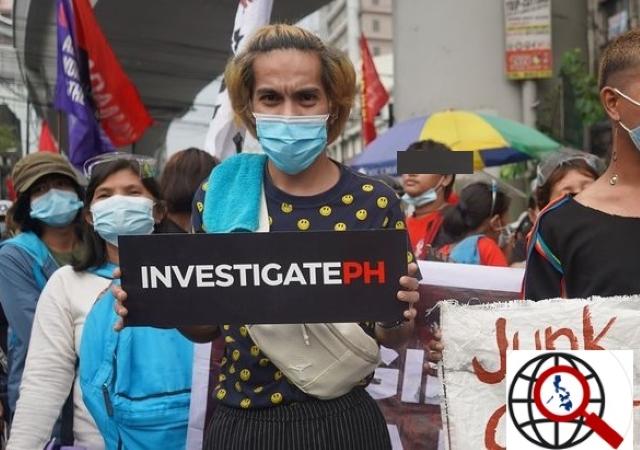Rights group alarmed over police ‘cover up,’ lack of credible autopsy in Duterte drug war

An international human rights watchdog on Tuesday was alarmed over the Philippine police cover up and lack of credible autopsy in its killings during anti-drug operations.
In its second report, the Independent International Commission of Investigation into Human Rights Violations in the Philippines (Investigate PH) said the Philippine National Police (PNP) continued to "cover up" the circumstances in the drug war deaths.
The report indicated that unarmed victims were killed inside their homes, on the street or on being abducted. Weapons or narcotics were "likely planted after," the report also pointed out.
"Those killed in anti-drug operations are overwhelmingly poor people unable to assert their rights to due process," it added.
Investigate PH also cited a Union of Catholic Asian News "night-crawler" photographer's account that police claim of "nanlaban" continued to be used but his photos showed that victims had not fired a single shot.
"His photographs of dead bodies show signs of handcuffs or zip ties, suggesting victims were not resisting when shot dead. In some cases, the bodies still had zip ties, which the police did not bother to remove after death," the report also said.
Lack of credibility in autopsy
In processing of drug war victims' bodies, the report also found that proper procedures were not followed in the police autopsy.
"Death Certificates lacked data and were inaccurate. The police examination did not include X-rays of victims, nor properly record evidence of defensive wounds," read the report.
It cited forensic pathologist Dr. Raquel Fortun's independent autopsy reports of drug war victims.
Based on her clinical evidence, Fortun said death certificates showed that there was no genuine police inquiry into the cause of death.
"A number of the bodies showed evidence of zip ties or handcuffs, which indicates that the victims were restrained when they were executed. She found that defensive wounds of victims were not recorded by the police," it said.
Death certificates of drug war victims were also signed by doctors associated with the PNP. This means there could be cooperation with the medical professionals in the cover up of the extrajudicial killings, the report also said.
Security forces used 'tokhang' style of killings against political dissenters
The Philippine military and police were believed to be adopting the "Oplan Tokhang" style of killings in targeting political activists, Investigate PH said.
Oplan Tokhang is a strategy of lawmen to knock-and-plead to urge drug suspects to stop using narcotics.
"The armed forces are more emboldened in killing dissenters. Police and soldiers are now executing political dissenters in a manner similar to extrajudicial killings in anti-drug operations," read the report.
It further cited that the government's anti-insurgency task force or National Task Force to End Local Communist Armed Conflict and passage of anti-terror law "facilitated the killings" of "alleged communists to churches to long-standing democratic institutions."
From July 2016 to December 2020, Investigate PH said there are 376 cases of recorded killings of political dissenters.
The 62-page second report of Investigate PH is based on the accounts and verified information from its resource persons including survivors, relatives of victims and human rights advocates with personal knowledge of state violence and expert witness on autopsies.
Its first report was released in March 2021, wherein the Investigate PH, composed of international human rights, faith, and civic groups, asked international authorities to act more on the human rights atrocities in the country.
Investigate PH's Final report will be released in September 2021, which is also the same date of the 48th Regular Session of United Nations Human Rights Council wherein High Commissioner Michelle Bachelet will present an update on the human rights situation in the Philippines.—LDF, GMA News



